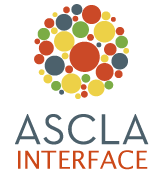Report from the OLA Superconference Session on Prison Libraries, January 2009
By Julia Schneider, retired Senior Librarian California Department of Corrections and Rehabilitation
Inquisitive librarians at the Ontario Library Association�s Super Conference held in Toronto, Canada in January 2009 flocked to hear correctional librarian Joanne Lefebvre tell them everything they wanted to know about the unfamiliar world of prison libraries.
�Prison libraries are mandated to provide services and computerized services that are comparable to those in the community,� she said, but added, �I�ll stand up right now and tell you that they don�t.�
What they do provide is nonetheless invaluable, according to Lefebvre, the long-time librarian at Collins� Bay Institution, in Kingston, Ontario, who is now serving as the Institution�s Coordinator of the Learning Disabilities Initiative.
�Offenders don�t go anywhere,� she said. �They use the library primarily in the evening. It is extremely, extremely important to them. There isn�t much to do [in prison] so, if you don�t do sports, you�re either in the library or in a group.�
�Those in prison use the library 10 times as much as those outside.�
Federal prisons in Canada, unlike those in the U.S., where most prisons are state-run, house all inmates with sentences of more than two years� duration. An institution like Collins� Bay holds about 630 inmates, compared to over 6,000 in some California institutions.
The correctional library in Kingston, the center of a number of institutions including the maximum security Kingston Penitentiary that Charles Dickens wrote about after his North American tour, provides a number of things for the offenders.
It provides reading material �to fill the offender�s needs for literary, cultural, spiritual, educational and information materials,� while also restricting material relating to crimes. Lefebvre says she is very aware that �as a librarian, I am spending taxpayers� money and I make very, very sure I am spending it appropriately.�
A committee at the institution hears complaints from inmates�called offenders in Canada�who are dissatisfied with restrictions placed on a particular title. Lefebvre spoke about the case of Satan�s Bible, a book that came to a Sensitive Materials Committee for adjudication, and how the Committee reversed her decision about not allowing it into the Institution.
�I have a little collection at home [of violent books like Hate Factory by Georgelle Hirliman] but what am I going to do with it?� she asked. �I can�t give it away.�
Of her clients, Lefebvre said, �You have users who are easy to get along with, and those of whom you think �Him again!��
�I have my lifers in the library to ensure order � but these 20 and 21 year-olds are hard to deal with. All they are interested in is �me� and who and what they can use in this prison to help me.�
Ninety percent of offenders have less than Grade 12 education, while 60 percent have less than a Grade 8 education. Lefebvre estimates that 90 percent or more suffer from some form of mental illness. She said that many inmates come from single parent families or have a history of broken homes, but added, �The current President of the United States came from a single parent family and was raised by grandparents � and he did well for himself.�
What qualities are needed to be a prison librarian? According to Lefebvre, one needs a good sense of humor, mental toughness, a desire to help, flexibility, a non-judgmental attitude and a strong sense of values and goals.
�You have to be very careful not to cross the line,� she said of avoiding situations in which moral standards might be breached.
Lefebvre said that when she started working at Collins� Bay in 1983 she asked, �Where is the library?� and was dismayed to find it was not even on the institutional map. This reflected a culture in which the library was held in low esteem. Things may have changed since then, but one of the things she has learned, she said, is that you can�t take the job home with you.
�You need to leave the dysfunctional behind when you go home � you need an outlet outside of prison.�
Note about the author: Julia Schneider, who retired as a Senior Librarian with the California Department of Corrections and Rehabilitation in 2007, served a term as Joanne Lefebvre�s replacement in the Collins� Bay Library in the early 1990�s, while Lefebvre completed an education degree.
